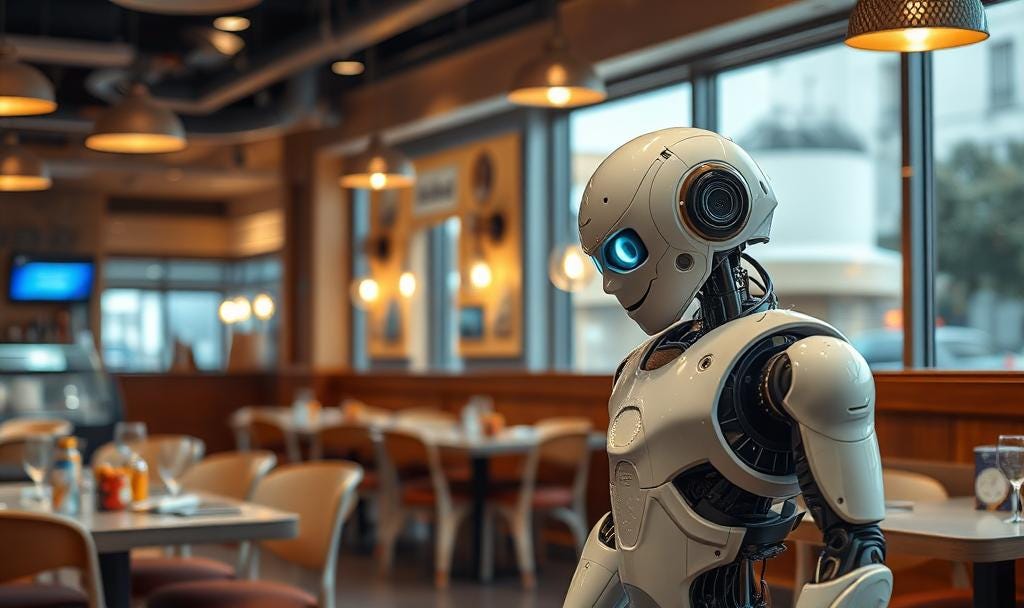AI will write the menu at Chicago's Next
Is it a gimmick? Or a creative tool with staying power?
The New York Times ran a story on Monday about the latest project from lauded Chicago chef Grant Achatz. For an upcoming menu at his restaurant Next, a concept that completely changes its menu and experience every few months, he’s tapping generative AI tool ChatGPT to help build the recipes.
Well… kind of?
As reported by Pete Wells, Achatz created chef personas, including a 33-year-old woman from Wisconsin called Jill who trained under a trio of legendary chefs — including one who died almost 100 years ago. Then he prompted ChatGPT to suggest dishes that reflected her “influences,” also fed into ChatGPT. Achatz plans to use the tool to refine recipes from “Jill” along with eight other chefs, Wells writes, and wants the bot to do as much of the planning as possible.
Still, as Wells concedes further in the piece, none of the handful of chefs he interviewed for the story would “blindly follow any recipe it suggests.” In these cases, ChatGPT is best used as inspiration.
Wait, how did we get here?
ChatGPT is probably the best-known example of generative AI, a class of technology that uses a ton of information to create content. It spits out replies to prompts from hundreds of millions of people weekly, often in a confident, cheeky tone. ChatGPT and its competitors, like Anthropic’s Claude and Perplexity AI, can be used in place of an old-school Google search, but it doesn’t always cite its sources. Sometimes, it makes things up. (You may have heard about fake citations in that recent health report from the White House, or numerous cases involving lawyers who did the same.)
How much water does this use again?
Points to generative AI for its novelty; it is sometimes fun to talk to a robot. But the technology sucks up a vast amount of resources, including electricity and water. An analysis conducted in part by the Washington Post last year found that asking ChatGPT to write one 100-word email uses roughly the equivalent of a bottle of water, used to keep servers cool enough to function in data centers.
While noted technologist and climate-friendly philanthropist Bill Gates has said, basically, “don’t worry about it,” (I’m paraphrasing), as these tools become more prevalent and powerful, balancing their utility with their environmental impact seems… prudent.
Maybe I’m just not excited by the possibility of it all.
I’ll agree that this kind of ChatGPT-fueled thought experiment has found a good home at Next, which by its nature can jump on trends and ideas in a way that plenty of other restaurants can’t (or shouldn’t). But at its core, the creation of these dishes feel like a well-timed gimmick.
It’s also challenging to square the fun parts of this emerging tech with its weaknesses. Yes, the stakes are lower for a chef using ChatGPT to develop a dish versus, say, the top health official in the country using it to compose a report that will influence major policy decisions. As the other chefs in Wells’ piece noted, Achatz & co. will surely check, modify, or otherwise edit ChatGPT’s recipes to be fit for consumption at a restaurant carrying one Michelin star. In other words, human professionals will check the robot’s work to make sure no one gets hurt.
We can’t say the same for all use-cases. Recently, the so-called “godfather of AI” publicly warned of the tech’s darker side — emerging behaviors like cheating, lying, and deceiving users in the name of self-preservation (yikes) — that makes this technology much, much harder to swallow.
What else?
The DC Council voted on Tuesday to pause the planned tipped minimum wage increase. The vote delays the next incremental wage raise from July 1 to October. Earlier this week on Expedite, Jessica Sidman, Washingtonian’s food editor, walked me through the ongoing saga. — Expedite
Food & Wine put ‘low-tech restaurants’ on its annual game-changers list. I did a double-take given I’ve previously read — and contributed! — profiles to the list that centered around good tech inside restaurants. We’ve come full-circle, I guess. — Food & Wine
DoorDash recently hit 10 billion lifetime orders on its platform. DoorDash fulfilled its one-billionth order in 2020; that’s a lot of growth. — DoorDash
Are supper clubs the future of hospitality? I don’t love this article this framing, which assumes the hospitality business is innately ‘less than’ a biology degree. I’d actually call this San Francisco supper club launch a pretty brilliant career pivot, tapping strong skills and talent to give people the human connection they seem to be so desperately searching for. — SFGate
Remember Book-It? It’s an app now. I remember the Book It! program as a school-year thing, but Pizza Hut is launching a Book It! app this month to promote summer reading. Students still earn a personal-pan pizza for meeting monthly reading goals, a true highlight of my own suburban childhood. — release
Dave’s Hot Chicken sold a majority of its shares to Roark Capital. This is the same private equity firm that controls both Subway and Inspire Brands (parent of Dunkin’ Buffalo Wild Wings, and other major national chains) and has invested in many (many!) concepts. — Restaurant Dive





Speaking of talking to robots, tunny that your latest newsletter hit my inbox at the same time as I was reading this : https://techstory.in/ai-firm-declares-bankruptcy-after-700-indian-engineers-exposure/